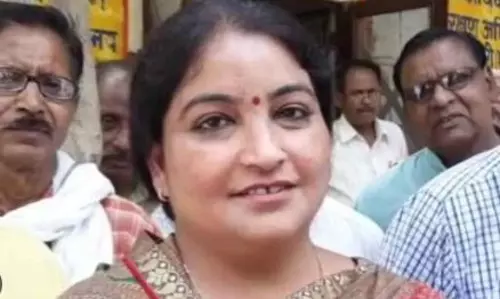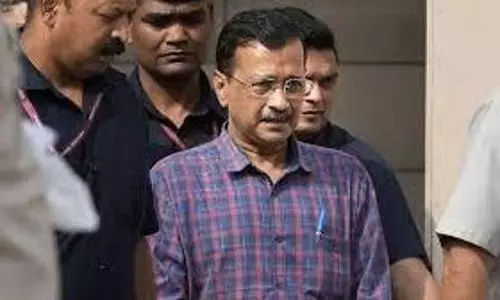
States too have rights
text_fieldsAre the debates triggered by governors, including Arif Mohammad Khan, of various states ruled by non-BJP parties, merely the natural pastime of party politics? Not likely, as indicated by the major overhaul being undertaken under the Modi government in centre-state relations. Attempts to pave the path towards centralization of power, breaking the backbone of federal structure, are becoming more and more evident so much so that they can no longer be ignored.
The politics of ultra-nationalism has always been prejudicial against the federal system and in favour of the unitary. The plea made earlier by Narendra Modi for a presidential model was reproached as targeting of power. In fact centralisation of sorts is in effect happening at a fast pace through reining in of top-level autonomous institutions like the Reserve Bank, Election Commission, CBI and CAG. The BJP, which came to power with increased majority, however does not enjoy that much of invincibility in the states. Not only that, since December 2018, within a year it lost majority in several assembly elections. In Rajasthan, Madhya Pradesh and Chhattisgarh, it lost the polls, and in Haryana it does not enjoy absolute majority. In Maharashtra, power slipped out of its hands and it Jharkhand it got roundly beaten.
However, hopes that these manifestations of popular will at state-level would deter the excesses pf the Centre, were dashed. Instead, it appears as though the government is sending governors to non-BJP states with the sole agenda of creating problems there. This was noticed in states of Goa, Manipur, Meghalaya and Bihar. In Arunachal Pradesh, the governor's act of dismissing the Congress cabinet and hoisting an alternative government led by a dissident, had to be annulled by the court. And similar interferences were made or attempted in Uttarakhand, Karnataka and Maharashtra.
And now in Kerala too, the governor is getting into confrontation with the government. For open confrontation on technical grounds, Mohammad Arif Khan used incidents from the resolution passed by the elected state assembly to the state government's petition in the Supreme Court against the citizenship law. The justification he cites for all this – that he is the representative of the President – may outwardly look innocent, but actually negates the constitutional rights of the state assembly and the government.
In earlier times too, there were occasions under Congress regimes when the post of the governor were relegated to the Centre's agency, but the recommendations of Sarkaria Commission ensured the balance in federalism thus restoring democratic rights to the states. Ever since the BJP came to power at the Centre, this balance is fast being disturbed, and that too not only on one or two issues. The statehood of Jammu-Kashmir was repealed during which the elected assembly was entirely bypassed. Decentralisation of power, that should be ensured at regional government levels, is being wrecked through a process where everything is being turned a decision of two individuals.
Even in subjects of law and order and education, inlcuded in the 'Concurrent' list of the Constitution, the Centre is acting unilaterally. On banks, public sector undertakings, universities etc, the central government is tightening its grip giving the states a go-by. More consequential than all this is the Centre's encroachment into the fiscal sphere, where the states' rights are being overturned. In spite of being clearly defined in the Constitution, fiscal federalism is being struck at its root. In order for states to perform its duties defined by the Constitution itself, economic well-being is a pre-requisite. But the Goods & Services Tax (GST) has come to spell the obituary of the fiscal freedom of states. The purpose of Finance Commission is to ensure the equitable distribution of tax revenue.
The decision of the 14th Finance Commission to increase the states' share of tax revenue from 32 percent to 42 percent, was binding on the Centre. The government, which accepted it, made that infructuous by curtailing grants and the allocations for centre-initiated schemes. The problem does not end there. Although the share of taxes is decided by the Finance Commission, it is the Centre that decides the allocations out of cesses and surcharges. There has been a tendency for the Centre to grab the funds collected under these heads. Not only that, there is an increasing trend to resort to imposing cess and surcharge, rathar than taxes, as source of income. And in financial year 2018-19 what the states received was only 34 per cent by way of tax share. There is a situation in which the states are having to beg and get the compensation, which the states are entitled to according the GST Act, for losses suffered in tax revenue.
Centralisation of power, including in fiscal sector, has become a powerful tool used by the central government for moving towards a uni-culture nationalism with slogans such as One Election, One Tax and One Language. And Raj Bhavans are soon becoming channels of power working towards that end. It is too late for states to stand together to recapture federalism. If it is further delayed, federal structure itself will become a thing of the past.























